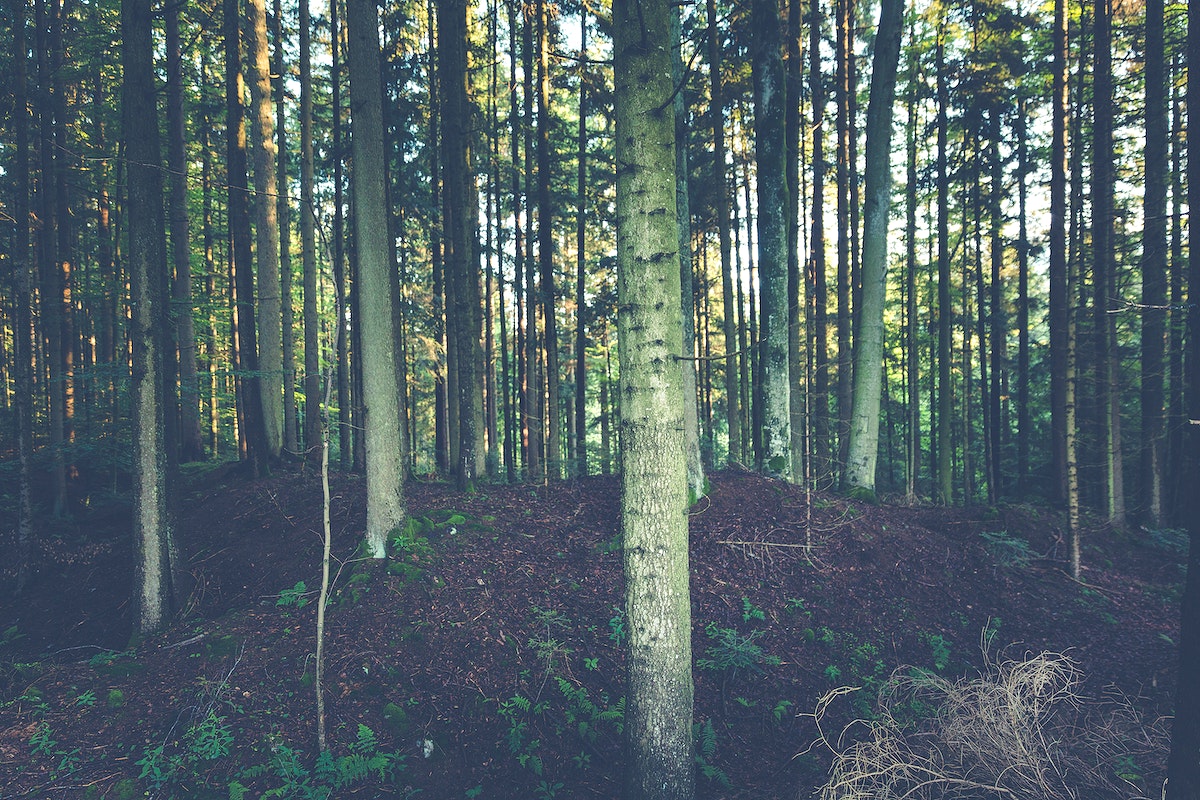When Justin Trudeau labels some opponents as ‘populists’, Canadian media echoes it, often linking the term exclusively to right-wing American politics. This narrative is bolstered by pointing to the populist style of Donald Trump. In a twist of logic, they brand Pierre Poilievre as a populist, implying he’s Canada’s version of Trump.
So, let’s clear up a common misconception: populism isn’t a political ideology, and it’s not exclusively an American right-wing phenomenon. It’s a strategy, a tool in the electoral toolbox used to rally support and secure votes. It’s not fused to any political leaning. Consider the CCF, precursor to the NDP, was a left-wing populist party. In the words of American socialist icon Bernie Sanders, “Populism is not a bad thing. It’s about the government responding to the needs of the people.”
Populism is a shrub that thrives in the soil of popular discontent. It blossoms in the shade of societal and economic unrest, when large groups of people feel alienated or forgotten. It’s a knee-jerk reaction to the chaos of rapid change, uncertainty, or the aftermath of natural disasters – often a desperate grasp for stability in a world that feels anything but.
At its core, as Sanders suggests populism is about people, but it is also about the leaders who present themselves as their saviours. They’re the champions of the common folk, they “have your back every step of the way,” they claim they will right existing wrongs. They offer simple, appealing solutions to complex problems in one-line slogans.
But here’s the catch: populist leaders create divisions, drawing lines between people based on identity, class, ideology, geography, or a combination of these. They tap into existing fears, stirring up emotions, anger, and frustration: they’re demagogues who create scapegoats on whom to lay blame.
Justin Trudeau’s actions and political profile resemble those of Donald Trump in important ways if we follow the characteristics above. Imagine Trudeau and Trump standing in front of a mirror. Despite their contrasting political views, the reflection reveals striking resemblances.
Trump burst onto the political stage, leveraging his name, celebrity status and notoriety as a reality TV icon. Similarly, Justin Trudeau didn’t rise through the ranks as a seasoned political veteran but rather as the offspring of a political patriarch, a fresh face with a left-leaning ideology that was anything but mainstream. Both leaders, despite facing opponents with more political experience, managed to use their unique appeal to clinch their party’s leadership and lead them to notable victories.
Just as Trump rode in like a knight in shining armour, ready to rescue the “forgotten” American, Trudeau positioned himself as the saviour from the perceived destructive reign of the Harper Conservatives. He painted a gloomy picture of Canada under the grip of Albertans and declared salvation could only come if a Quebecker was at the helm. Laurentians were thus the victims. “Sunny ways,” the solution.
Trudeau’s promises resonated with the woke and Laurentian masses. His narrative of taxing the rich to uplift the middle class, accompanied later by his faux ministry for the middle class, and his pledges to legalize marijuana, overhaul the voting system, boost infrastructure spending, and stimulate the economy through “modest” deficits, were music to many an ear. Moreover, Trudeau fashioned himself as the torchbearer of a progressive, woke revolution, positioning himself as the guardian of progressivism, further amplifying his populist appeal among those who see themselves as oppressed.
There’s an uncanny similarity between Trump and Trudeau, and it’s not their charisma. Both seem to have a knack for making themselves the star of the show, regardless of the context. Trump, with his flamboyant demeanour, often shirks responsibility, playing a blameless hero in his own narrative, while disregarding institutional checks and balances.
Trudeau has the same limelight-grabbing drive. The infamous trip to India is but one example. Trudeau is also quick to point out the wrongs of others and offer apologies on their behalf. Yet when it comes to his own missteps, such as the blackface incidents, he only admits fault when backed into a corner. Otherwise, there’s always an array of scapegoats waiting in the wings: premiers, foreign leaders, bureaucrats, political rivals, antivaxx citizens.
Imagine a Teflon-coated leader, impervious to any scandal or misstep. Picture Trump supporters, unfazed by his actions, whether it’s alleged harassment, deceit, or flagrant disregard for laws and ethics. Their loyalty endures, steadfast and unyielding.
Now, transpose this image onto Justin Trudeau. Despite a laundry list of wrong-doings and controversies—from breaking laws and constitutional norms, conflicts of interests, intimidating an attorney general, to overreacting to protests and violating civil rights—his fan base remains undeterred.
He’s weathered accusations of allowing gross foreign interference in elections, lying under oath, favouring friends in handing out contracts, and even donned blackface, yet his supporters remain fiercely loyal. Just like Trump, Trudeau seems to possess the same –and likely even better –Teflon coating, deflecting criticism while belittling his opponents.
Consider Trump’s approach: he portrayed a world in decay, obsessed with the spectre of the ‘other’, and proposed building walls to keep these imagined threats at arm’s length. His critics labelled this as hate-fuelled rhetoric. Now, let’s turn the lens on Trudeau. He views Canada’s past as a series of transgressions against marginalized communities. Yet, he has waged a ferocious campaign against those unwilling to vaccinate or those critical of his mandates, painting them as racists or purveyors of ‘unacceptable views’. In doing so, he positioned himself as the ultimate arbiter of which perspectives merit consideration, marginalising people with varying views in the process.
Trudeau harnessed the fears of the COVID virus, cranking up the volume on this fear, to position himself, rather ludicrously, as the protector of the vaccinated while simultaneously claiming to hold the scientific high ground. Without having to build a wall, he kept unvaxxed Canadians out of the country or prevented them from leaving. Despite labelling Canada as a post-national state, Trudeau has enacted laws aimed at extorting foreign companies, under the guise of protecting Canadian identity and institutions. This is tantamount to erecting a virtual nationalistic wall against international corporations.
Trudeau’s playbook includes the strategic use of confusion and fear to create division to improve his position. By painting himself as the bulwark against right-wing extremism and xenophobia, he’s effectively branded himself as defender to the fearful and anxious. This extends to his engagement with identity politics, where he deftly appeals to groups such as Indigenous people, and the 2SLGBTQ+ community. Yet, while he champions inclusivity, he abandons groups to secure others (Muslims and women have been traded for the more popular Trans). In that way, his inclusivity is often a weapon for excluding others, creating a polarized Canadian society with deep-seated divisions.
Trudeau’s talent for tapping into people’s anxieties to present his policies as the cure-all is a classic populist move. This observation is echoed by American economist Paul Krugman’s view that populism thrives on an ‘us versus them’ identity narrative, which is equally applicable to climate change, healthcare, or sexual identity.
On the subject of accepting defeat, Donald Trump’s reluctance to concede to Joe Biden is still fresh in our minds. This narrative is not confined to the U.S. though, as whispers are circulating about Trudeau potentially not accepting defeat in the next election. This idea, if true, suggests an unsettling parallel with Trump, especially considering Trudeau’s minority government has been in power for the past four years.
It’s remarkable to see how Trudeau and Trump have masterfully played the emotional chords of their followers, tapping into their fears and frustrations, skilfully appealing to various groups while sowing the seeds of division. Yet, their styles diverge on the traditional political spectrum – Trudeau’s flavour of populism leans toward the post-modern progressive left, while Trump’s tilts toward a nationalist right. The fascinating part? Trudeau’s form of populism has been so deftly executed, media and his followers seem blissfully unaware of his striking similarities to Trump, and how closely the disposition of Trudeau’s followers mirror Trump’s own followers.
Populism, that sneaky phenomenon that can sprout from the left or right, has a knack for quietly chipping away at the bedrock of a country if left unchecked. It can infect with deep discord. It can dilute norms, laws, and constitutional safeguards designed to keep power-hungry leaders at bay. Dutch political scientist Cas Mudde hit the nail on the head when he suggested that populism isn’t a magical antidote to democracy’s troubles – rather, it’s a glaring red flag. Leaders like Trudeau tend to exacerbate these issues, and it is making Canada worse off than he found it.
Marco Navarro-Genie is the founding president of the Haultain Research Institute. He is coauthor, with Barry Cooper, of Canada’s COVID: The Story of a Pandemic Moral Panic (2023)


Share Your Thoughts